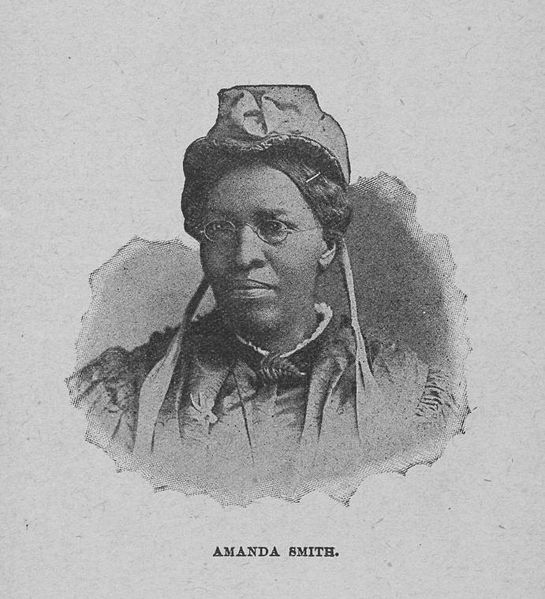Self explanatory title. I abhor that nicey nicey, politically correct, pseudo-Christianity which almost always supports leftwing attitudes - which in most cases are profoundly anti-Gospel. This Blog supports persecuted Christians. This Blog exposes cults. This Blog opposes junk science. UPDATED DAILY. This is not a forum. This Blog supports truly Christian websites and aids their efforts. It is hardhitting and unashamedly evangelical so if it offends - please do not come to this site!
Wednesday, May 31, 2023
Marxism Has ALWAYS Been Based on Evil.
Apathy Reigns.
4 ways to shift church culture from apathy to expectation of growth.
 A group of people listening to a sermon in church. | Getty/ FatCamera. The American church is at a crisis moment. Only 1% of churches have an ongoing evangelism emphasis.
A group of people listening to a sermon in church. | Getty/ FatCamera. The American church is at a crisis moment. Only 1% of churches have an ongoing evangelism emphasis.EU Empire and Erdogan.
The EU empire is crumbling.

29 May 2023 •
Hmm. Rather An Odd Thought Process.
Just before his death in May 337, it is claimed that Constantine was baptised into Christianity. Up until this time he had been a catechumen for most of his adult life. He believed that if he waited to get baptized on his death bed he was in less danger of polluting his soul with sin and not getting to heaven.
'Creation of Fossils Takes Millions of Years.'
DINOSAUR BONES DO IT! So do fossil insects and bats on stalactites and leaves and teddy bears. Great new 40 mins show with John and Joe and Craig on just how rapidly calcification occurs in all sorts of fossils and how ignorant the sceptics are and how foolish those pastors are who listen to them. DONT MISS THIS EXPOSÉ filmed live with all specimens shown. WATCH HERE: https://youtu.be/N0Olur3iVZ0
Our Undertrained Police?
Police track down red panda that escaped from local zoo to a wholesale fruit market - as officer jokes panda rescue is 'not a topic taught in training'.
- Police found the red panda in a fruit shop after it escaped from Newquay Zoo
- The Cornish zoo keeps two red pandas called Seren and Sundara
Revelation 13.
Revelation 13: The Beast, persecution and providence.
 | Joseph Prezioso/AFP via Getty Images
| Joseph Prezioso/AFP via Getty Images“And he spoke terrible words of blasphemy against God, slandering his name and his dwelling — that is, those who dwell in Heaven. And the beast was allowed to wage war against God’s holy people and to conquer them. And he was given authority to rule over every tribe and people and language and nation” (Revelation 13:6-9).
“If ever there was an insult to the dwelling place of God, this action of Caligula was one. And it may well be that this notorious incident was in John’s mind when he speaks of the insults which the beast launched against the dwelling place of God.”
“We come now to our modern world. What kind of culture do we face … Dogma is decried; conviction is discarded; belief is discredited. And a man is to be open-minded, and broad-minded, and liberal, and he is not to come to a conclusion about anything, much less believe in a salvation in one Lord alone.”
“[T]raditional tolerance … asserts that everyone has an equal right to believe or say what he thinks is right, the new tolerance — the way our children are being taught to believe — says that what every individual believes or says is equally right, equally valid. So not only does everyone have an equal right to his beliefs, but all beliefs are equal. All values are equal. All lifestyles are equal. All truth claims are equal …“The Bible makes it clear that all values, beliefs, lifestyles, and truth claims are not equal. It teaches that the God of the Bible is the true God (Jeremiah 10:10), that all his words are true (Psalm 119:160), and that if something is not right in God’s sight, it is wrong (Deuteronomy 6:18). This is not just the view of Hebrew culture or Christian culture or Western culture; it is the truth, according to the God who rules over all cultures, revealed in God’s Word.”
“He [the Beast] cannot harm the glorified saints in Heaven, but he can harm the believers on Earth, at least those not specially sealed against him. The age-old mystery of the suffering of the saints is again brought into focus. It was given unto him to make war with the saints and to overcome them, just as it was given unto Herod to imprison and behead John the Baptist, and just as it was given to Satan to persecute Job, and just as it was given to Pilate to pass sentence of death upon Jesus. It is all a deep mystery now, but it will be an eternal weight of glory for the sufferers when God gives out the Martyr’s crowns.“This is the devil’s last fling against the people of God. The great dragon will drink his fill of blood, and the beast, summoned from the sea and from the pit, will be unmasked at last for what he is, a monster with a quenchless thirst for blood.“He must dominate the globe. North, south, east, and West, all peoples must yield obedience to him. It will not last long, it is true, but for a brief season, his power and authority will be acknowledged worldwide. Satan will achieve his goal of unifying the nations, dazzling some, browbeating others, cementing the whole tricky structure together with the mortar of the indulgence of every evil passion and with the epoxy of horrible, merciless, unrelenting persecution.”
“And all the people who belong to this world worshiped the beast. They are the ones whose names were not written in the Book of Life that belongs to the Lamb who was slaughtered before the world was made. Anyone with ears to hear should listen and understand. Anyone who is destined for prison will be taken to prison. Anyone destined to die by the sword will die by the sword” (Revelation 13:8-10).
“That their names were written before the foundation of the world carries the assurance that even though they [God’s persecuted people] seem to be powerless before the attacks of the beast, they are really in the keeping providence of God and have been since the foundation of the world …“[T]he persecution waged by the beast will be carried out within the providence of God, and therefore violent resistance is out of place. If one is destined for captivity, he must be willing to go meekly as a Christian. However, persecution is not the last word; there is divine retribution, and the final punishment of those who kill with the sword will fit the crime. The last word is not with the persecutor.”
Tuesday, May 30, 2023
Arthur Mann RIP.
India, Liberia and Sierra Leone - The Mighty Amanda Smith.
Smith, Amanda [Berry] (1837-1915).
African American holiness evangelist and missionary.
 Amanda Berry was born into slavery at Long Green, Maryland. She was married in 1854 to Calvin M. Devine and her conversion followed two years later. After her husband died in the Civil War, she moved to Philadelphia and married James Smith, and ordained deacon at Mother Bethel African Methodist Episcopal (AME) Church. After visiting Green Street Church in Philadelphia, where she heard John S. Inskip, a prominent Wesleyan holiness leader, preach, she testified that she had received her sanctification there. Following the death of her second husband in 1869, she traveled as a holiness evangelist, becoming a popular speaker in many churches and camp meetings. Smith’s friendships included prominent holiness and prohibition movement leaders such as Hannah Whitall Smith and Frances Willard.
Amanda Berry was born into slavery at Long Green, Maryland. She was married in 1854 to Calvin M. Devine and her conversion followed two years later. After her husband died in the Civil War, she moved to Philadelphia and married James Smith, and ordained deacon at Mother Bethel African Methodist Episcopal (AME) Church. After visiting Green Street Church in Philadelphia, where she heard John S. Inskip, a prominent Wesleyan holiness leader, preach, she testified that she had received her sanctification there. Following the death of her second husband in 1869, she traveled as a holiness evangelist, becoming a popular speaker in many churches and camp meetings. Smith’s friendships included prominent holiness and prohibition movement leaders such as Hannah Whitall Smith and Frances Willard.Bibliography.
Digital Primary
I Don't Wholly Agree, Stephen.
STEPHEN GLOVER: I can’t abide entitled Tory know-alls like George Osborne who want to tax orange juice and cake and ban smoking
Oldest Bat Skeletons Offer Little Help To Evolutionists.

OLDEST BAT SKELETON. Palaeontologists at the American Museum of Natural History and Naturalis Biodiversity Centre in the Netherlands have studied two bat skeletons found in the Green River Formation in Wyoming, USA, and claim to have found a new species of fossil bat. Nearly 30 bat fossils have been found in the Green River formation, representing two species. The new fossil bats had shorter broader wings than other Green River bats, and they had claws on the wing's first and second digit, and therefore have been classified as a new species named Icaronycteris gunnelli. Otherwise, they “looked almost similar to present-day bats”. The fossils have been dated as 52 million years old. The researchers wrote: “The relative stratigraphic position of these fossils indicates that they are the oldest bat skeletons recovered to date anywhere in the world.” Arvid Aase, park manager and curator at the Fossil Butte National Monument, in Wyoming, explained: “One of these bat specimens was found lower in the section than all other bats, making this species older than any of the other bat species recovered from this deposit.” Nancy Simmons, one of the research team commented: “This is a step forward in understanding what happened in terms of evolution and diversity back in the early days of bats.”
References: Interesting Engineering 12April 2023; Science (AAAS) News12 April 2023; ScienceDaily 13April 2023; PLOS ONE 12 April 2023, doi:10.1371/journal.pone.0283505
ED. COM. Let’s call a spade a spade, and face the fact that when you find two fully formed bats with all the features of present-day bats, it doesn’t matter how old you think these fossil bats are, they will not help scientists understand the evolution of bats! The difference in wing structure, plus the fact that this bat species is now extinct, does tell us something about diversity of bats – there used to be more bat varieties, i.e. there has been a decrease in diversity. Those who believe bats evolved from non-flying mammals are ignoring the actual evidence that fossil and living bats confirm the record of Genesis, which tells us flying creatures were created fully functional, according to their kinds, on the fifth creation day. Yet land dwelling mammals were not created until the sixth day. Since then flying and non-flying mammals have reproduced after their kinds, but some, like Icaronycteris gunnelli have died out, while none have evolved. These fossils also confirm the overall history of the world as being created perfectly complex, but because of human sin and God’s judgement, it is degenerating and losing living things. Another fossil bat also dated as 52 million years old was reported in 2008 – see our report Oldest Bat Fossil here. So why is this one now claimed to be the oldest bat? Note the claim “stratigraphic position of these fossils” i.e. the rock layer it was found in. This dating method depends on the assumption that lower layers were laid down before upper layers in a process of depositing one layer on top of one another. However, experiments conducted by Creation Research show that rock layers are actually laid down sideways, which means lower layers can be laid down at the same time as upper layers. More details of our strata experiments here. Creation Research. |
The Remarkable Faith of Elisabeth Elliott.
Elisabeth Elliot: A Life
- Single-Volume Biography on Elisabeth Elliot: Author Lucy S. R. Austen explores Elliot’s professional articles, books, and radio programs, as well as personal scrapbooks, journals, and letters
- Engaging: Tells the complex and moving life story of one of the most well-known Christian missionaries
- A Great Resource for Students: Thoroughly researched book provides information about Elliot beyond her work with the Waorani people and her first husband’s death

Cannabis? Harmless?
Almost a third of schizophrenia cases in young men triggered by cannabis use.
Health concerns ‘require urgent action’
Monday, May 29, 2023
Wisdom.
The common-sense wisdom of a 16-year-old girl.
 Unsplash/Pâmela Lima
Unsplash/Pâmela LimaAsh Wednesday?
What is the biblical basis of Ash Wednesday. Ahna Ziegler/Unsplash 18 February 2026 is Ash Wednesday, which traditionally starts the seas...

-
Franklin Graham preached in Glasgow, launches new fund to defend religious freedom in the UK. Staff writer Franklin Graham preaching at ...
-
7 ) ... Evidently some people are throwing you into confusion and are trying to pervert the gospel of Christ. 8) But even if we or an ang...

.jpg)
.jpg)

.jpg)
.jpg)
.jpg)

.jpeg)